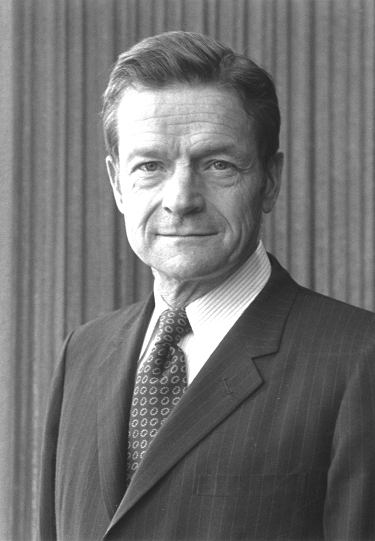John R. Silber*
Class of 1992
- President Boston University

No world is more real than the world of ideas into which students are, or should be, immersed from kindergarten through college.
Born in 1926, John Silber grew up in San Antonio, Texas. His father, an architect, was unemployed during most of the Great Depression. His mother returned to teaching to help with finances. When he was six, Silber contracted a serious infection. Without antibiotics, he spent five months in bed recuperating. During that time, he grew close to his father, who entertained his son by gluing pictures to cardboard and then cutting them into puzzle pieces.
Silber attended Trinity University, where he majored in philosophy and fine art. After his graduation in 1947, he spent a year at Yale Divinity School, then a semester at the University of Texas Law School. Still uncertain of what he wanted to do, he dropped out of school in 1949 and made a living selling sandwiches and cold drinks to college students. Several months later, he returned to Yale and completed his doctorate in philosophy. After five years on the Yale faculty, he joined the department of philosophy at the University of Texas at Austin and later became dean of its College of Arts and Sciences.
In 1971, Silber became the seventh president of Boston University (BU), a position he kept for more than 25 years. In 1996, he was appointed BU's chancellor. His duties included reviewing tenure appointments, selecting deans and professors, and overseeing architectural developments on campus. He also called on his many years of experience as president to deal with political issues.
Silber wrote columns on educational issues. In 2007, his book titled Architecture of the Absurd: How "Genius" Disfigured a Practical Art was published.
A devoted member of the Horatio Alger Association, Silber said, "Over the years, I've enjoyed the opportunity to meet inspiring adults. I also like meeting the wonderful Scholars." Silber proudly pointed out that the Association's Collegiate Partners program began at BU. "I have come to know several Scholars who have attended our school, and it was good to know they were getting an excellent education without being burdened by a mountain of debt," he said. "The Horatio Alger Association has opened many doors of opportunity."
His advice to young people was to study hard. "Pack as much knowledge into your being as you can, because you will be drawing on this intellectual capital for the rest of your life," he said. "Pay attention to the things you can control and become a person of integrity. It is beyond our control to guarantee happiness, but you can live in such a way as to be worthy of it."
